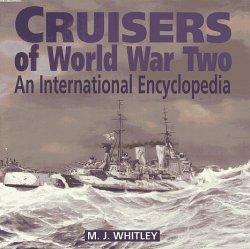The Cold War in the Third World is the subject of a rich body of literature shaped by diverse interpretations and sources. For an international overview drawing on archives from several different countries, see Odd Arne Westad, The Global Cold War: Third World Interventions and the Making of Our Times (Cambridge: Cambridge University Press, 2005). Other useful overviews include Mark T. Berger, The Battle for Asia: From Decolonization to Globalization (London: RoutledgeCurzon, 2004), and Forrest D. Colburn, The Vogue of Revolution in Poor Countries (Princeton, NJ: Princeton University Press, 1994).
United States policy is broadly treated in Peter L. Hahn and Mary Ann Heiss (eds.), Empire and Revolution: The United States and the Third World since 1945 (Columbus, OH: Ohio State University Press, 2001), and in Gabriel Kolko's critical Confronting the Third World: United States Foreign Policy, 1944-1980 (New York: Pantheon, 1988). For an account stressing the agency of Third World actors, see Zachary Karabell, Architects of Intervention: The United States, the Third World, and the Cold War, 1946-1962 (Baton Rouge, LA: Louisiana State University Press, 1999). On American ideology and modernization, see Nils Gilman, Mandarins of the Future: Modernization Theory in Cold War America (Baltimore, MD: Johns Hopkins University Press, 2003), David C. Engerman, Nils Gilman, Mark H. Haefele, and Michael E. Latham (eds.), Staging Growth: Modernization, Development, and the Global Cold War (Amherst, MA: University of Massachusetts Press, 2003), and Michael E. Latham, Modernization as Ideology: American Social Science and “Nation Building” in the Kennedy Era (Chapel Hill, NC: University of North Carolina Press, 2000). Kennedy and Johnson policies are analyzed in Diane Kunz, (ed.), The Diplomacy of the Crucial Decade: American Foreign Relations during the 1960s (New York: Columbia University Press, 1994), Thomas G. Paterson (ed.), Kennedy’s Quest for Victory: American Foreign Policy, 1961-1963 (New York: Oxford University Press, 1989); and Warren I. Cohen and Nancy Bernkopf Tucker, Lyndon Johnson Confronts the World: American Foreign Policy, 1963-1968 (Cambridge: Cambridge University Press, 1994). For US policy toward specific regions and countries, consult Henry F. Jackson, From the Congo to Soweto: U. S. Foreign Policy toward Africa since 1960 (New York: William Morrow, 1982), Douglas Little, American Orientalism: The United States and the Middle East since 1945 (Chapel Hill, NC: University of North Carolina Press, 2002), Fredrik Logevall, Choosing War: The Lost Chance for Peace and the Escalation of the War in Vietnam (Berkeley, CA: University of California Press, 1999), Robert McMahon, The Limits of Empire: The United States and Southeast Asia since World War II (New York: Columbia University Press, 1999), Dennis Merrill, Bread and the Ballot: The United States and India’s Economic Development, 1947-1963 (Chapel Hill, NC: University of North Carolina Press, 1990), Stephen G. Rabe, The Most Dangerous Area in the World: John F. Kennedy Confronts Communist Revolution in Latin America (Chapel Hill, NC: University of North Carolina Press, 1999), and Marilyn Young, The Vietnam Wars, 1945-1990 (New York: Harper Perennial, 1991). On the United States and the problem of race, see Thomas Borstelmann, The Cold War and the Color Line: American Race Relations in the Global Arena (Cambridge, MA: Harvard University Press, 2001).
Soviet relations with the Third World are treated in Roy Allison, The Soviet Union and the Strategy of Non-Alignment in the Third World (Cambridge: Cambridge University Press, 1988), Mark N. Katz (ed.), The USSR and Marxist Revolutions in the Third World (Cambridge: Cambridge University Press, 1990), Edward Kolodziej and Roger E. Kanet (eds.), The Limits of Soviet Power in the Developing World (Baltimore, MD: Johns Hopkins University Press, 1989), Andrzej Korbonski and Francis Fukuyama (eds.), The Soviet Union and the Third World: The Last Three Decades (Ithaca, NY: Cornell University Press, 1987), Bruce D. Porter, The USSR in Third World Conflicts: Soviet Arms and Diplomacy in Local Wars, 1945-1980 (Cambridge: Cambridge University Press, 1984) and Alvin Z. Rubinstein, Moscow's Third World Strategy (Princeton, NJ: Princeton University Press, 1988). More recent works, focused on Khrushchev and Brezhnev, include Edwin Bacon and Mark Sandle (eds.), Brezhnev Reconsidered (Houndmills, UK: Palgrave, 2002), Aleksandr Fursenko and Timothy Naftali, Khrushchev's Cold War: The Inside Story of an American Adversary (New York: Norton, 2006), William Taubman, Khrushchev: The Man and His Era (New York: Norton, 2003), and Vladislav Zubok and Constantine Pleshakov, Inside the Kremlin's Cold War: From Stalin to Khrushchev (Cambridge, MA: Harvard University Press, 1996). On the USSR and Vietnam, see Ilya V. Gaiduk, The Soviet Union and the Vietnam War (Chicago: Ivan R. Dee, 1996). Nigel Jonathan Gould-Davies, "The Logic of Faith: Ideas, Interests, and the Soviet Experience in World Politics," Ph. D. dissertation, Harvard University (2002), analyzes Soviet ideology.
For the significance of the Third World in the wider contours of Chinese policy, Chen Jian, Mao's China and the Cold War (Chapel Hill, NC: University of North Carolina Press, 2001), John W. Garver, Foreign Relations of the People's Republic of China (Englewood Cliffs, NJ: Prentice Hall, 1993), Kuo-kang Shao, Zhou Enlai and the Foundations of Chinese Foreign Policy (New York: St. Martin's Press, 1996), and Thomas W. Robinson and David Shambaugh (eds.), Chinese Foreign Policy: Theory and Practice (Oxford: Oxford University Press, 1994), are very useful. On China and Vietnam, see Priscilla Roberts (ed.), Behind the Bamboo Curtain: China, Vietnam, and the World beyond Asia (Washington, DC, and Stanford, CA: Wilson Center Press and Stanford University Press, 2006), and Qiang Zhai, China and the Vietnam Wars, 1930-1973 (Chapel Hill, NC: University of North Carolina Press, 2000). For Africa, consult Steven F. Jackson, "China's Third World Foreign Policy: The Case of Angola and Mozambique, 1961-93," China Quarterly (1995), 388-422, and Philip Snow, The Star Raft: China's Encounter with Africa (New York: Weidenfield and Nicolson, 1988).
Other valuable studies, based on specific countries and cases, include Matthew Connelly, A Diplomatic Revolution: Algeria's Fight for Independence and the Origins of the Post-Cold War Era (Oxford: Oxford University Press, 2002), Jorge I. Dominguez, To Make the World Safe for Democracy: Cuba's Foreign Policy (Cambridge, MA: Harvard University Press, 1989), Piero Gleijeses, Conflicting Missions: Havana, Washington, and Africa, 1939-1976 (Chapel Hill, NC: University of North Carolina Press, 2002), and John Marcum, The Angolan Revolution (Cambridge, MA: MIT Press, 1978).
See also section 22 of the bibliography in volume I; sections 14, 15, 16, and 17 in this volume; and sections 2, 7, and 8 in volume III.




 World History
World History









